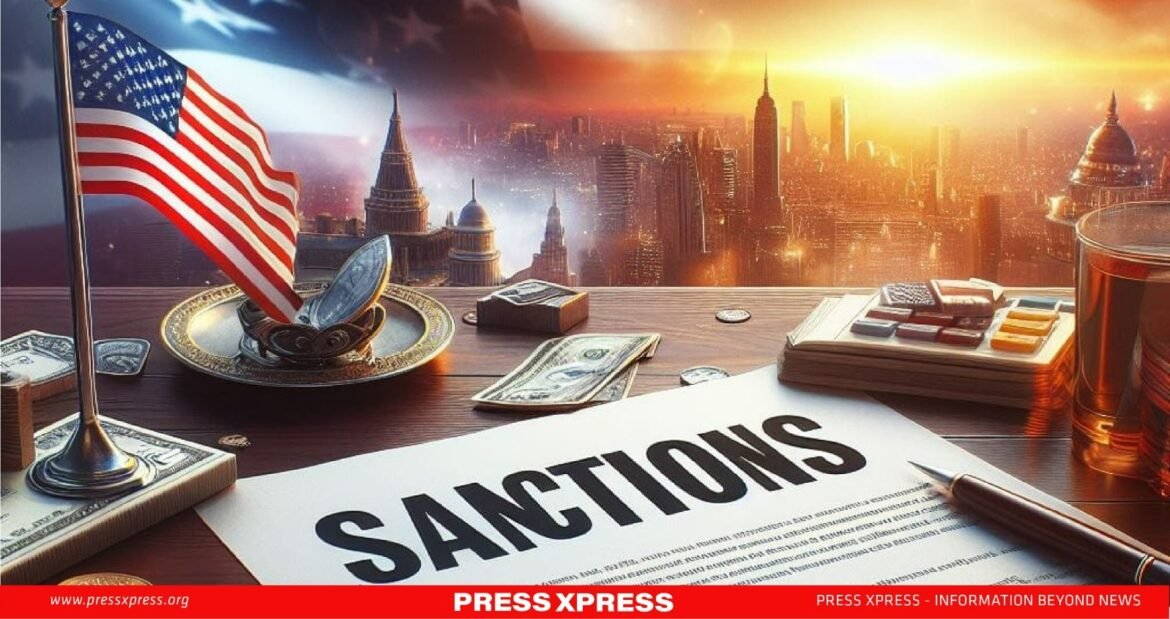10th December marked the 75th anniversary of the Universal Declaration of Human Rights (UDHR). In a bold move leading up to the 75th anniversary, on December 8th, the US Department of the Treasury has wielded its power by imposing sanctions on individuals from various nations. This action was taken as a display of US’s resolute testament to the nation’s unwavering commitment to upholding human rights and holding perpetrators of abuse accountable.
You Can Also Read: BNP’s Non-Participation Won’t Affect Credible Elections
BNP-Jamaat, meanwhile, have been campaigning heavily to sabotage the country’s economy as well as violating human rights via their acts of arson and violence. A hope within the BNP was that the United States would impose sanctions on Bangladesh due to the recent unrest caused by RMG workers. However, the government, in a prudent move and recognizing the rights of the RMG workers, raised the minimum wage. The result was a diffusion of a situation that BNP tried to exploit. Consequentially, no Bangladeshi entity or individual were found in the list published by the US Department of Treasury. The decision has had a thundering effect on BNP leadership, who have always depended more on foreign assistance than grassroots support in order to wage their campaigns.
Over the course of the past year, the US Treasury, in its continuous pursuit of human rights, has designated and targeted 150 individuals and entities across a multitude of countries. The focus of these designations extends beyond mere lip service; they actively leverage a myriad of sanctions authorities, targeting activities that brazenly violate or abuse human rights. These actions starkly contradict the principles outlined in the Universal Declaration of Human Rights (UDHR).
Effects of Sanctions
Latest Sanction Details:
- Declared on: 8th December, 2023
- Number of Targets: 37
- Total Sanctioned Individuals and Entities: 150
The Treasury’s designations cast a wide net, encapsulating instances of human rights abuse entangled with terrorist organizations, criminal activities, and other violent actors. The spectrum of violations spans the repression of civil society members, protesters, and journalists, to violence against civilians, arbitrary detention, kidnapping, and gender-based violence, including conflict-related sexual violence (CRSV).
The repercussions of these sanctions are far-reaching, with all properties and interests in the United States, or under the control of U.S. persons, belonging to the designated individuals, effectively blocked. This mandate, reported to the Office of Foreign Assets Control (OFAC), ensures a stringent enforcement of the sanctions. Additionally, entities with 50 percent or more ownership by blocked persons also find themselves subject to a comprehensive blocking.
Financial institutions and other entities partaking in transactions or activities with these sanctioned individuals and entities walk a tightrope, as they risk exposing themselves to sanctions or becoming the target of rigorous enforcement actions. This robust stance by the US Treasury sends a clear message – a commitment to ensuring that human rights violations do not go unchecked, and accountability remains at the forefront of global consciousness.
From the very beginning, the United States has reiterated the fact that it supports a free, fair and inclusive elections in Bangladesh. The possibility of sanctions was never discussed or even proposed. The sanctions that the US did impose was on Rapid Action Battalion, a creation of BNP, and a law enforcement organization.
The much talked about visa ban too, was imposed against individuals. It was aimed at individuals who the US government identified as impeding the democratic process or as a threat to the enactment of a free and fair election. As a result, the government, committed to upholding democratic continuity and the upholding of a free and fair election, has welcomed the US Visa policy.
BNP a Candidate for Sanctions
The United States recent sanctions are aimed at those individuals and entities that violate human rights. BNP, with its active role in arson, vandalism and its rich past history of sponsoring terrorists like JMB, are prime candidates for US sanctions. BNP is actively engaged in a campaign of violence to derail a democratic, inclusive and constitutionally mandated elections. Therefore, the United States Visa policy and Sanctions target should, logically be BNP-Jamaat.
BNP’s Multistage Failure
BNP’s leadership has failed, and spectacularly at that. The scope and range of its failure is broad. It has failed in strategic thinking by assuming that the general population will support its violent campaign- they have not. They have failed to create sufficient levels of unrest due to the government’s vigilant stance. Its attempts to get foreign actors to intervene in the sovereign, internal policies of Bangladesh has not only crashed and burned, but has deepened the “depth of distrust” of the general population and dislike for BNP. It is high time BNP and its allies realize that their campaign to illegally seize power has failed miserably.
The BNP leadership must now decide on what past they must walk on- whether to continue on a path of violence and fade into obscurity, or to reject Tarique Zia’s modus operandi of murder/arson and reintegrate themselves into the democratic process. However, it should be mentioned that to do so, BNP leadership would have to cauterize Tarique and like minded proponents of violence, murder and arson from its party and remerge as a party that works for the people.


